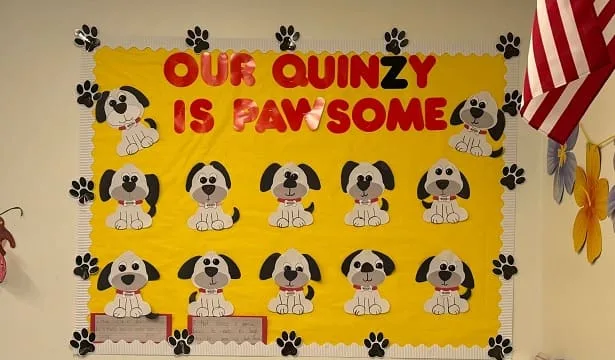
Jack & Jill Center — the longest-running nonprofit provider of early childhood education in Broward County – is pleased to offer Animal Assisted Therapy to children at its Madelaine Halmos Academy and NAEYC-Accredited Early Education program as an innovative part of the Center’s HEALTH Program.
The City of Fort Lauderdale honored Jack & Jill Center with a proclamation cementing April 30 as National Therapy Animal Day in the city. Anne Meoli, PhD, Jack & Jill Center’s director of HEALTH Initiatives accepted the proclamation at the City Commission meeting.
Jack & Jill Center’s mission is to strengthen children and families through innovative education, supportive programming and community engagement. Services provided through the HEALTH program are an essential piece of Jack & Jill Center’s comprehensive and holistic approach to service. Through comprehensive health assessments, provision of health services, preventative healthcare and community partnerships, the HEALTH program has a significant positive impact on the health and wellness of students, families and the community.
Fenway and Quinzy, the Therapy Dogs, are regular visitors on campus and an integral part of Jack & Jill Center’s social-emotional culture which supports students’ emotional health. Through the Animal Assisted Therapy, children learn life-long skills of living and safely interacting with dogs. The children and staff adore working with the therapy dogs and have seen some positive outcomes through this service. Most importantly, attendance has improved on the days Fenway and Quinzy are at the school.
National Therapy Animal Day was created by Pet Partners to:
- Recognize and honor therapy dogs and other therapy animals who partner with their human companions (handlers) to bring comfort and healing to those in need.
- Raise awareness and educate the public about the role therapy animals play in enhancing the health and well-being of humans.
- Honor the thousands of dedicated handlers who volunteer their time and compassion during visits in a variety of settings including hospitals, pediatric care units, schools, and assisted living facilities.
- Encourage pet owners to become therapy animal teams, creating happier, healthier communities through greater access to safe and meaningful interactions with therapy dogs and other therapy animals.















